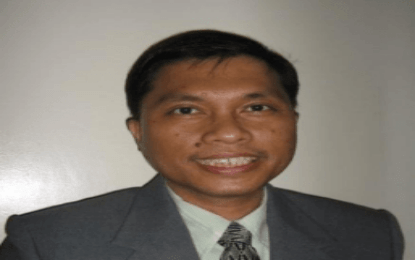ESPRESSO MORNINGS
By Joe Zaldarriaga

Under his guidance, Meralco achieved unprecedented milestones, clinching a historic 3-peat Company of the Year title at the IABC Philippine Quill Awards, scoring the only PR Team of the Year trophy bestowed at the Anvil Awards, and securing numerous honors at international and local communication awards.
Manong Joe’s leadership also extends as a respected member of the Board of Trustees for the Public Relations Society of the Philippines (PRSP), concurrent with his role as Chairman of the International Association of Business Communicators Philippines (IABC Philippines) where he also served as its President.
Manong Joe is a distinguished awardee of the medallion of honor and scroll of commendation from the University of Manila, owing to his years in public service as a communications professional. He shares his insights through columns in renowned publications, including The Philippine Star’s The Z Factor, and Philippine News Agency’s ESPRESSO MORNINGS.
Over the weekend, a massive billboard along Katipunan Avenue in Quezon City collapsed as strong winds and heavy rainfall battered Metro Manila.
The structure toppled onto a few vehicles and even brought down a Meralco electric pole, halting traffic, risking public safety, and disrupting power service to more than 1,000 customers. Thankfully, Meralco crews were quick to respond, partly easing the traffic congestion and restoring power service to customers.
While there were no fatalities, the incident is a stark reminder of the need for stricter regulation of billboards, considering evolving weather patterns brought about by climate change.
We have seen in recent years how climate change has transformed weather patterns, ranging from extreme dry spells to super typhoons. For context, the heavy rains and strong winds experienced in Metro Manila over the weekend were due to the southwest monsoon (habagat) that was intensified by Severe Tropical Storm Crising.
In fact, there was no tropical cyclone warning signal hoisted over the capital region and yet urban dwellers still felt the brunt of severe weather conditions, which even resulted in flooding in different areas. Increased rainfall intensity, strong winds, and rapid weather shifts have become the new normal and existing infrastructure, such as billboards need to adapt to ensure public safety.
This requires collaboration between the government and billboard operators to avoid possibly fatal consequences. After all, public safety is everyone’s responsibility.
Billboard owners and operators should employ modern engineering standards that are resilient to severe weather patterns; proactively check the structural integrity of their billboards; and monitor weather reports for accurate assessments on whether there is a need to proactively take down these structures temporarily.
On the part of government, safety protocols must evolve to be more proactive and adaptive. Periodic inspections, especially before and after a storm or weather disturbance, by structural engineers of local government units (LGUs) and the Metropolitan Manila Development Authority (MMDA) should also be implemented to ensure the integrity of these billboards. Structural permits for billboards should be renewed annually with load and stress tests as strict requirements for renewal.
For billboard operators found to be negligent of safety protocols and/or fail to maintain their structures, government should levy stronger legal and financial penalties. It must be noted that many of these billboards are positioned on top of high-rise buildings found in areas with high foot traffic, or near major roads and highways. Therefore, fines and penalties should scale with the potential damage, especially since public safety is at risk.
LGUs should also revisit and strengthen protocols for billboard takedowns, as well as the temporary removal of vulnerable structures, not only when a storm is forecast to hit, but whenever severe weather is expected. In today’s climate, even non-typhoon conditions can bring winds and rainfall strong enough to exceed safety thresholds.
It is an undeniable fact that climate change is changing the status quo and we all have to adapt. Safeguarding lives and property depend on proactive planning, proper regulation, technical diligence, and accountability at all levels.
The recent incident in Katipunan should serve as a wake-up call especially for LGUs, billboard owners and operators. Public safety is a serious matter. It is not optional.
In this era of intensifying weather conditions, we must raise our safety standards to match the changing landscape – so that no life is lost to something entirely preventable.




